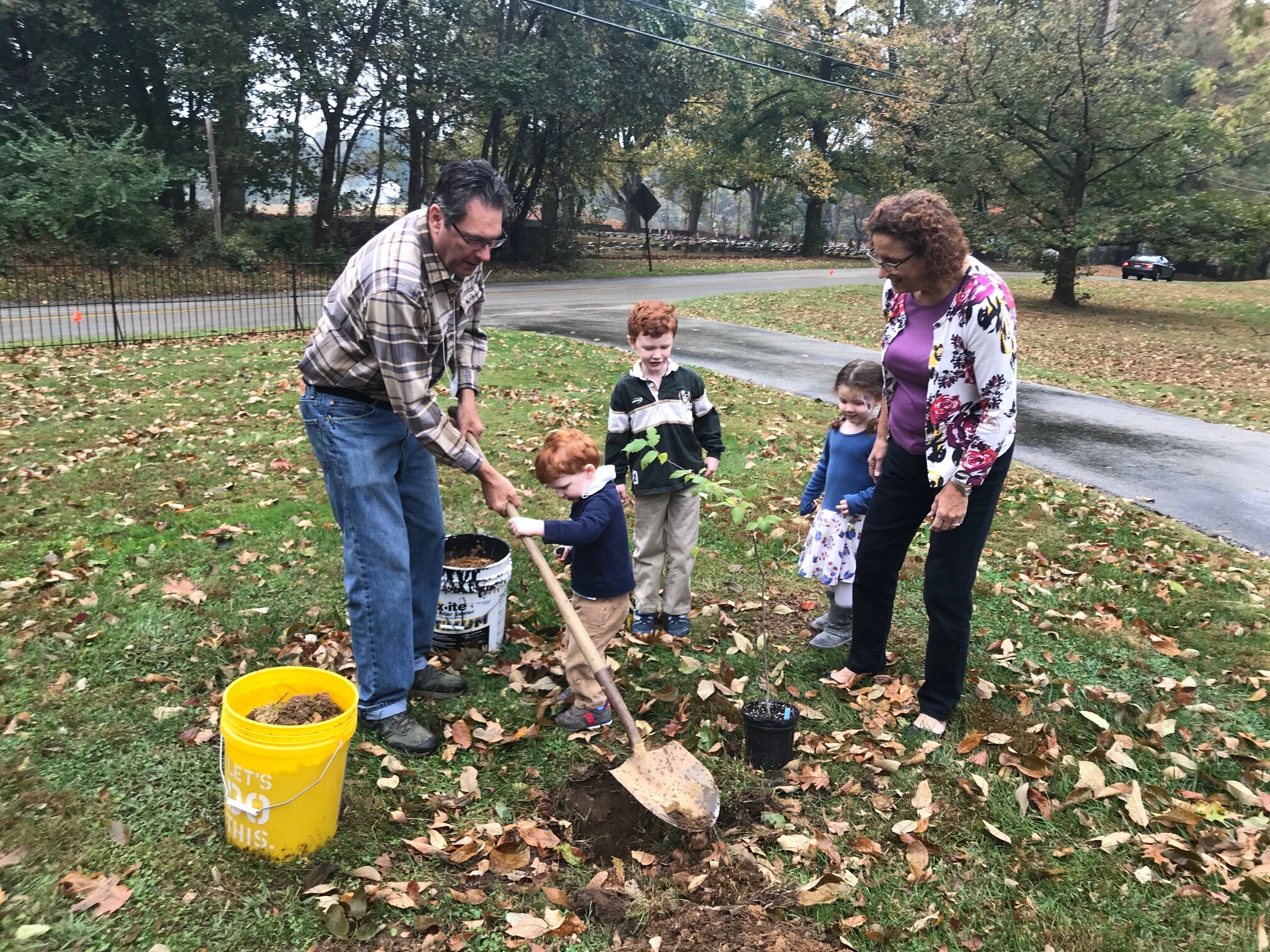Anne Hollingsworth Thomas Moore died on January 24, 2019.
Her death marked the end of a decline that had been increasing over the past year. During this year Anne gradually pared back her commitments, but continued, as long as she could, walking with her walker from her Hampton Court apartment to several vigils downtown, exercise classes at the Senior Center, and Friend’s Meeting each Sunday. Anne’s Grandmother Thomas told her family that they were possessed of “strong blood,” and the Hollingsworths had a family motto: “What cannot be cured must be endured.”
Anne Hollingsworth Thomas was born on August 15, 1929. Her mother was Lydia Hollingsworth Thomas, her father was Raymond Moore Thomas, and she grew up in a small house on the edge of the Thomas family farm and tree nursery near Valley Forge, Pa., with her younger sister Amy. Anne attended the Old Eagle Elementary School, George School, and Swarthmore College, graduating in 1951. After college she worked for two years at Baxter Labs in Evanston, Ill., worked as a research assistant at Penn, hitchhiked across the country with Amy, and worked in the weaving studio of George Harndon in Philadelphia, Pa. She was cooking for the Friends General Conference in Cape May when she met Tom Moore who was attending the conference as part of his exploration of Quakerism.
Anne married Tom in 1954, and they moved to Lansdowne, PA, where he was secretary of the local YMCA. Anne’s first child, Lydia Anne, was born in Lansdowne in 1956. In 1957 Anne and Tom moved to Washington, D.C. to be the co-directors of the International Student House. Anne’s second child, Howard Thomas, was born in Washington, D.C. in 1958. In 1960 the family moved to Lawrence, KS, where Tom was director of the University of Kansas Student YMCA. They bought a house at 1007 Alabama Street, a block from the stadium. Anne’s third child, Charles David, was born in that house in 1962. For the next two decades, Anne raised three children and was active in a number of community institutions. She was one of the core members of the Oread Friends Meeting, collected clothing for and was on the board of the AFSC, and was connected with FCNL. She sold UNICEF cards for seventeen years, and sold pecans for Koinonia, a racially integrated farm community in Americus, Ga. She was a director of the Volunteer Clearing House, which connected organizations in need of volunteer labor with people seeking to do volunteer work. She was a supervisor of VISTA volunteers, a founding member of Lawrence Coalition for Peace and Justice, and an organizer of Breakthrough, a mental health support group. Anne was a founder with other people of the Lawrence Peace Center, organized Nuclear Freeze activists, and lobbied Senator Bob Dole against the war in Vietnam.
At Anne’s instigation Anne and Tom moved east to live with and care for her parents in 1983.While there she was active with Pendle Hill, American Friends Service Committee, Friends World Committee for Consultation, Philadelphia Yearly Meeting, and Valley Friends Meeting. Anne’s father Raymond died in 1992. In 1994 Anne’s daughter Lydia, who was a doctor in Kansas City, KS., died in a car accident. In 1998, Anne and Tom moved to The Hickman in West Chester, PA. She joined the Chester County Peace Movement, was an early supporter of the NonViolent PeaceForce, served on the Hickman Building Committee and was active in the West Chester Friends Meeting. In 2008, Anne’s husband Tom died, and a month later, her mother Lydia died. In 2013 Anne moved to Northampton, MA, to be near her son Howard and his family. She quickly made new connections with, among many others, the Northampton Friends Meeting, the local chapter of the AFSC, exercise groups at the Senior Center, and Swarthmore alumni. She truly valued each of the people she knew, and maintained connections with hundreds of people, from her school days, and from all of the places she lived since. She continued grappling with her own understanding of race and class, the tension between her pride in her family history and a feeling, perhaps embarrassment, about her unearned privilege, and how to, given all that, express her ideals through action. And action was important to her. Many conversations were wrapped up with “Well, this isn’t getting the dishes done.”








